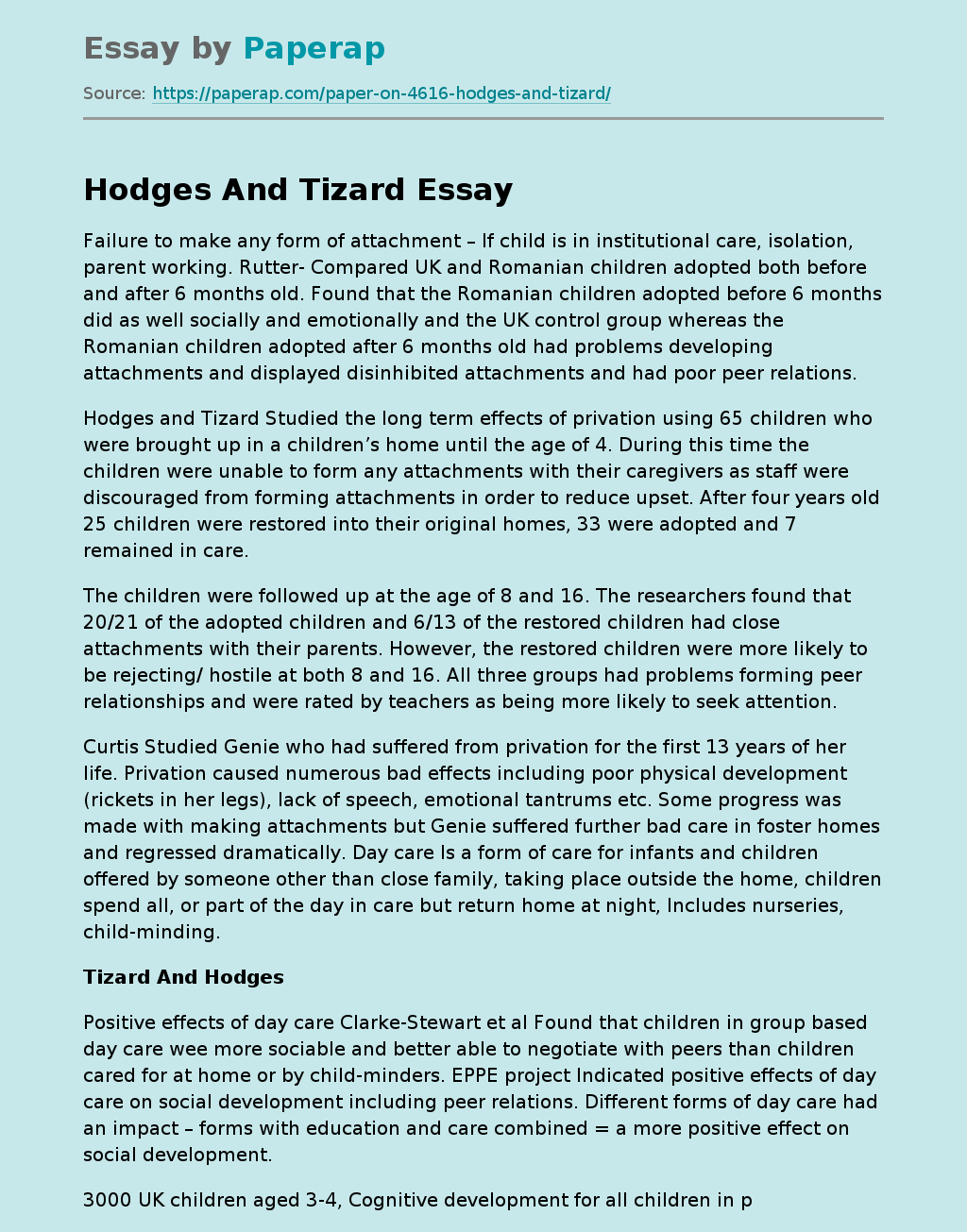Hodges And Tizard
Failure to make any form of attachment – If child is in institutional care, isolation, parent working. Rutter- Compared UK and Romanian children adopted both before and after 6 months old. Found that the Romanian children adopted before 6 months did as well socially and emotionally and the UK control group whereas the Romanian children adopted after 6 months old had problems developing attachments and displayed disinhibited attachments and had poor peer relations.
Hodges and Tizard Studied the long term effects of privation using 65 children who were brought up in a children’s home until the age of 4.
During this time the children were unable to form any attachments with their caregivers as staff were discouraged from forming attachments in order to reduce upset. After four years old 25 children were restored into their original homes, 33 were adopted and 7 remained in care.
The children were followed up at the age of 8 and 16. The researchers found that 20/21 of the adopted children and 6/13 of the restored children had close attachments with their parents.
However, the restored children were more likely to be rejecting/ hostile at both 8 and 16. All three groups had problems forming peer relationships and were rated by teachers as being more likely to seek attention.
Curtis Studied Genie who had suffered from privation for the first 13 years of her life. Privation caused numerous bad effects including poor physical development (rickets in her legs), lack of speech, emotional tantrums etc. Some progress was made with making attachments but Genie suffered further bad care in foster homes and regressed dramatically.
Day care Is a form of care for infants and children offered by someone other than close family, taking place outside the home, children spend all, or part of the day in care but return home at night, Includes nurseries, child-minding.
Tizard And Hodges
Positive effects of day care Clarke-Stewart et al Found that children in group based day care wee more sociable and better able to negotiate with peers than children cared for at home or by child-minders. EPPE project Indicated positive effects of day care on social development including peer relations. Different forms of day care had an impact – forms with education and care combined = a more positive effect on social development.
3000 UK children aged 3-4, Cognitive development for all children in pre-school was improved in comparison to those who were home schooled. Children are more likely to have adverse social profiles – this increased the risk of anti-social behaviour and could be reduced by high quality pre-school when aged 3-4. Negative effects of day care NICHD Social competence and problem behaviours – including being aggressive, but also challenging behaviour – attention seeking. Day care made children more aggressive and disobedient.
Hodges And Tizard. (2019, Dec 05). Retrieved from https://paperap.com/paper-on-4616-hodges-and-tizard/

